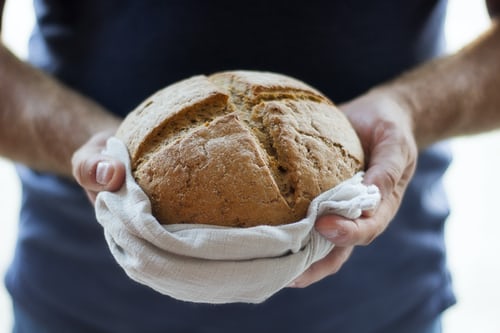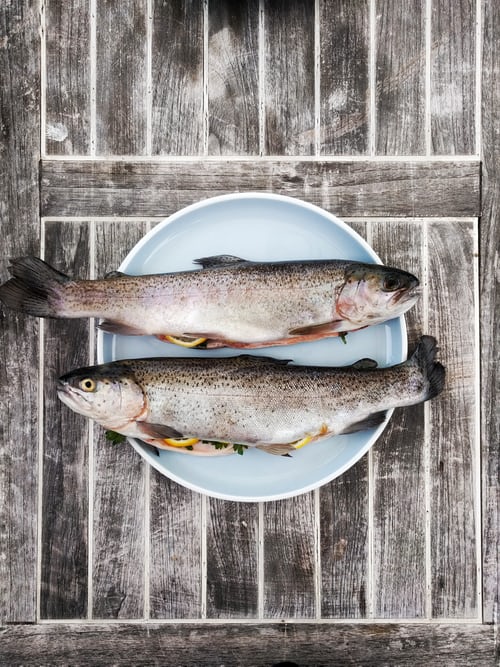By Sr. Wendy Grace, SSJD Novice
Isaiah 55: 1-5 Psalm 145: 8-9, 15-22 Romans 9: 1-5 Matthew 14: 13-21
May the words of my mouth and the meditations of all our hearts be acceptable in your sight O God our rock and our redeemer. (Psalm 19:14, paraphrased)
The gospel reading for today known as ‘The Feeding of the Five Thousand’ is a well-known story found in all four gospels. When I first began to read and reflect on the lectionary readings I was worried there wouldn’t be anything to say about a story we all know so well. I felt like Ruth gleaning behind the reapers hoping to pick up a scrap or two. I approached this reflection with a concern about scarcity. I didn’t know that God would use my concern about scarcity as a way into the text.
At the beginning of the gospel reading Jesus has withdrawn to a deserted place by himself. We need to go back a few verses to learn that Jesus has just heard about the death of John the Baptist – which explains his desire to be alone and perhaps gives some insight into how he was feeling. But the crowds follow him. And Jesus has compassion on them and heals their sick. Compassion means to ‘suffer with’. Jesus suffers with the crowd. Jesus doesn’t just cure the sick – Jesus is with them in their suffering. And then, at the end of what was probably a long day, the disciples come to Jesus with a problem. They not only see a problem but they helpfully provide a solution. It’s late and the place where they are is deserted, Jesus should send the crowds away to buy food.
Jesus doesn’t see the situation the same way. Jesus says, “no they need not go away, you give them something to eat.” The disciples’ response is, “we have nothing here but five loaves and two fish.”
We are invited to live in God’s abundant world, in the abundance of God’s gifts and in the abundance of God’s love but we often function, like the disciples in this story, from a position of scarcity. The disciples give what they have to Jesus and Jesus, after blessing and breaking the loaves and the fish, multiplies them.
Jesus gives the food to the disciples and the disciples distribute the food to the crowd. This to me, shows Jesus’ generous spirit towards the disciples – Jesus includes the disciples in the distribution. Jesus doesn’t need the disciples but he has called them and chosen them and he includes them in his work.
Jesus feeds the crowd freely. He feeds them in the same way he has healed their sick. He sees their needs, enters into their suffering and responds. The disciples think the crowd should feed themselves but Jesus feeds everybody. “All ate and were filled.” There is even a surplus – 12 baskets left over.
Often, we think giving God everything means having nothing left. We live, not in awareness of the abundant life we have in God, but in fear of scarcity, in fear of ‘not enough’.
We all do it, in one way or another. Perhaps in multiple ways. Sometimes when we feel the prompting of the Holy Spirit we respond by saying, ‘No, I can’t.” That is why we think and say things like: I’m not good enough. I’m not skilled enough. I’m not smart enough. I’m too young. I’m too old. I don’t have enough time. I don’t have the resources. I don’t have enough. We say, in effect “Here am I Lord. Send somebody else.”
As followers of Christ we like to see ourselves as countercultural. We live against the grain not with it. But we live in a world which actively encourages us to think otherwise, to think we don’t have enough and which tells us to hold on to the little we do have. The surrounding culture tirelessly, in ways both covert and overt, encourages us to be dissatisfied with what we have and holds out the promise of fulfillment if we only buy more, accumulate more, consume more. And it’s not just the consumer culture it is also our political discourse. We are encouraged by some politicians to see ourselves solely as taxpayers and not as citizens. We are encouraged to think about the individual cost of paying taxes– we’ve all heard politicians describe paying taxes as “taking money out of the pockets of hardworking people”- instead of encouraging us to focus on our contribution to the common good. The constant drip, drip, drip of that kind of attitude is corrosive. And we are not immune.
What is the cost to us of living with a scarcity mindset? In her book Braiding Sweetgrass Robin Wall Kimmerer tells a story about the Windigo. In the Anishinaabe culture the Windigo is a legendary monster. It is a story told to scare children but it is more than a campfire story. Wall Kimmerer writes, “Born of our own fears and failings, Windigo is the name for that within us which cares more for its own survival than for anything else.” (p. 305, Braiding Sweetgrass) Windigos are human beings transformed by their hunger into ravenous monsters who, no matter how much they consume, can never be satisfied.
And if there isn’t enough for me you can’t expect me to share it with you. Except that is exactly what we are called to do. In our Baptismal Covenant we promise to seek and serve Christ in all persons, loving our neighbours as ourselves. We are living through a time in our history when we are painfully aware of how the actions of a few affect many. We can see, in real time, how if we feed that part of us which cares about nothing but ourselves we sow destruction.
I began this reflection saying that I felt like Ruth gleaning behind the reapers. The Book of Ruth has what we might call a happy ending. I don’t want to wrap this up in a nice, tidy way because nice, tidy endings are not really the way we experience our lives. I do believe we are offered a choice. And it’s a choice we have to make over and over again. We can choose to live in and share in God’s abundance to, we can choose to, in the words of today’s collect feed, ‘on the bread of life’ and the ‘word of the kingdom’ or we can continue to live with an attitude of scarcity. AMEN.


